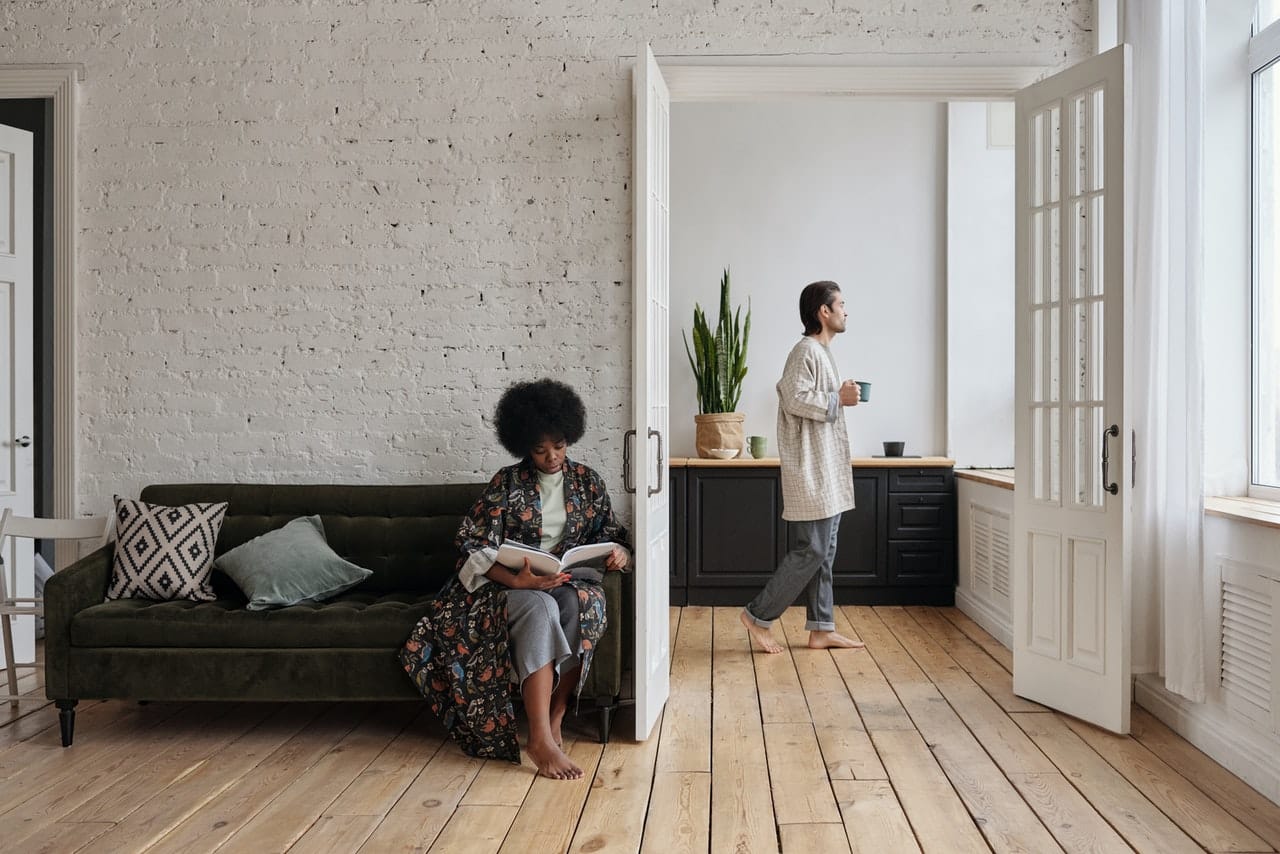
Improved Indoor Air Quality in 5 Simple Steps

As you may know, we’ve had an extremely harsh summer here in California (and along the west coast) with an outrageous number of fires. These fires have lead to very poor air quality. In fact, at one point, numerous cities along the Western U.S. were being reported as having the worst air quality in the world. With winds bringing the smoke into other states, even as far as the east coast of the U.S., many others began experiencing the effects of this smoke on their health and day-to-day routines as well.
This, coupled with the fact so many of us have been working from home or spending a lot more time indoors (due to the Coronvirus pandemic), has only contributed to an already, serious situation regarding indoor air pollution.
Fortunately, we’ve got five simple steps you can take to improve your indoor air quality starting right now:
1 – Keep Your Air Filters Clean
Air filters do not last forever. Replacing your air filters on a regular basis will help ensure you aren’t simply flooding your home with dirty air. Filters only work when they aren’t backed up or clogged with dust, pollen and other particles.
Keeping clean air circulating throughout your home can also help improve indoor air quality. Some may benefit greatly from the addition of a free-standing air purifier. The choice is yours.
2 – Use Natural Cleaners, Not Toxic Chemicals
Keeping your house clean is extremely important when it comes to indoor air quality. A clean home helps prevent the build-up of dust, pollen, animal dander, mold and other harmful substances. However, when you do clean, you would be smart to clean with organic, natural DIY cleaners. Cleaning with anything but natural cleaners simply introduces toxic chemicals into your home. This can be extremely harmful to your health.
This not only applies to those affected by the recent fires, but those impacted by the recent storms too. Water damage and excess moisture can be a big contributor to mold. If your home has had relatively minimal damage, cleaning with natural cleaners can go a long way to preventing long-term ramifications to your home and health.
3 – Keep The Dirt Outside
Speaking of cleaning…you can do a lot for yourself, and the air quality of your home, if you do your best to leave the dirt outdoors.
Simple ways to do this are to make sure your family and guests wipe their shoes on a mat outside the front door. Then, follow it up by asking everyone to remove their shoes. You can put a nice shoe rack near the door or simply have a rug where shoes can stay. This will prevent dirt, mud and other particles from being deposited on the carpets and floors around your home.
This can also apply to jackets and coats. If you set up a place for these at the door, it’ll be much better for your home’s air quality than tossing jackets on the bed. It will also mean you’ll need to do a lot less cleaning.
4 – Cook Smarter
How you cook your food, and what you cook, can also impact your home’s indoor air quality. For example, roasting certain items in a gas oven can actually generate quite a bit of fine particulate matter (PM) into the air. How long your stove or oven stays on is also a contributing factor. One study reported, “…spending an extra hour a day cooking can increase our exposure to fine particulate matter by 19 percent.”
While electric may be considered a better alternative, these types of stoves can also generate particulate matter, often from the cooking oil itself.
One way to cook smarter is to minimize the time your oven or stove is being used. The simplest way to accomplish this is to do your food prep ahead of time, before you even begin to start cooking. You can also plan your daily/weekly meals in advance with focus on reducing time spent cooking indoors. Options may include making fresh, vegetable-based meals, eating more salads and saving left-overs for later in the week.
5 – Air Out Your Home When Safe to Do So
While recent weather has assisted in cleaning up the outside air in some fire-scorched areas, we still have to address the need to improve indoor air quality. Because, even if you kept your home “closed up” with doors and windows shut, it’s very likely some of the poor outdoor air leaked in.
Indoor air quality is estimated to be between two and five times worse than outdoor air quality on average, not factoring in fires. In some instances it can be as bad as 100 times worse.
So, when it’s safe to do so, air out your home. Let the indoor air pollution out and get some fresh air in. You’ll probably notice the difference right away.
If you’re really worried about it, you may might consider getting a home air quality monitor to help set your mind at ease. Of course, keeping your home clean, changing your air filters regularly, using natural cleaners, cooking smartly, airing out your home when it’s safe to do so and keeping a few oxygen-producing plants around can also have a long-lasting, positive impact on your indoor air quality and health.



ESCO
Good tips! And as for air filters, they should be cleaned at least once every three months. But if you have pets or do remodeling in your house, you might need to do it more often.